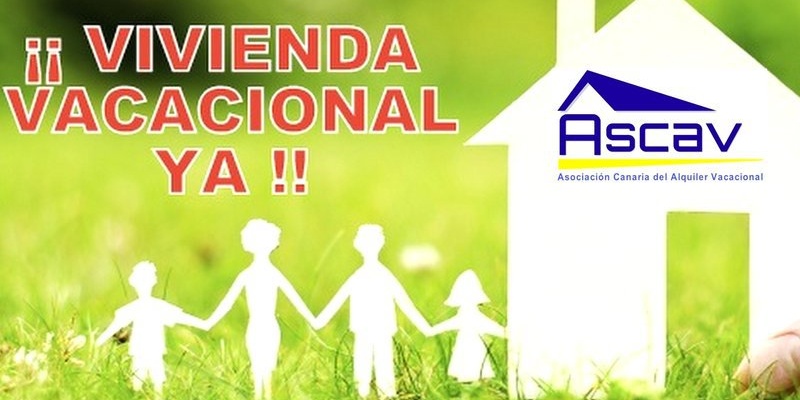Back in 2013, I wrote an article on Holiday Lets based on Law 4/2013 that was passed in June of that year. That law stated “that over the past few years there has been a significant increase in the use of private accommodation for touristic purposes that can be perceived as intrusion and unfair competition and also goes against the quality of tourist destinations”. It was down to each Autonomous Region to govern this matter as holiday lets do not fall under urban rental laws and as the majority know, in the Canaries, ASCAV has fought tirelessly to establish property owner’s rights to let their properties on a short-term basis.
ASCAV is the Canarian Association for Holiday Lets, founded in November 2013 and as an association it has submitted numerous reports to the Canarian Government to show why private owners should be permitted to holiday let their properties and hoped for a favourable outcome as they draft a new decree to regulate this matter as it has been left on the backburner for far too long. ASCAV has defended the means of living for some 53.000 families in the Canaries, 7.500 of which have been fined up to 60.000 Euros by tourist inspectors sent by the Canarian Government which was totally unnecessary since the activity was not properly regulated.
At the end of last month, Ricardo Fernández de la Puente Armas, Tourism Deputy Counsellor of the Canarian Government, announced that “after months of work and as a joint effort from associations and agents within the industry, a consensus has been reached in the form of a document drafted to contemplate diverse aspects that would guarantee the development of this activity on the islands”.
This draft of the decree includes certain amendments some of which can be considered a positive outcome whereas others have just generated further confusion. Some of the known modifications include:
- A change of terminology; instead of being referred to as properties for tourist purposes, they are now referred to as holiday homes.
- The initial draft of the project decree specified that it was necessary to obtain authorization from the Community of Owners to holiday let a property, however, article 11 of the revised draft states that if a property is located within an established community, it can only be used for holiday let if the community by-laws do not expressly prohibit this activity in their statutes. If the by-laws do not make specific mention of holiday rentals, individual owners may proceed but they must still respect internal regulations.
- Various associations and Cabildos requested the decree specify the areas in which holiday rentals can be carried out and in so doing, the draft includes an article to state that any properties or buildings situated within the zones, tourist areas or areas intended for touristic use are excluded from practicing holiday rentals. This article in particular has created a grey area that must be clarified because, who determines the boundaries? What is the point of holiday rentals outside tourist areas?
- The property owner must sign a Sworn Declaration upon initiating their rental activity that must be submitted at the corresponding Cabildo. In this declaration, the owner agrees to comply with updated regulations and guarantees to uphold them throughout the term of their activity. They must also provide documents to show the property in question is legal.
- The decree in its article 6 also looks to protect the consumer; any promotional marketing, offers and management of the rental property must be transparent, objective, truthful and in good faith, providing sufficient information about its characteristics, terms of use and services included in the price.
One topic that has not been covered as expected is that of Bed and Breakfasts despite strong protests from various associations such as ASCAV, that wanted this type of accommodation to be included under holiday rental law. The decree may undergo further modifications and tweaks before the definitive law is published so it is possible that certain aspects included in this draft may be clarified properly.
On a personal note, the Canaries is the region with the highest supply/demand for holiday homes in Spain so this decree could seriously restrict the activity instead of promoting it so that owners can rent legally and contribute positively to the islands’ economy. Private holiday rentals do not pose a threat to hoteliers as feared since each activity is unique, it does, however, provide more support to local businesses, something that All Inclusive accommodation does not so while I am in favour of legalizing holiday rentals, it should be regulated so that minimum standards can be maintained and also so that those who receive an income from this activity can pay their taxes, therefore benefitting everyone.


